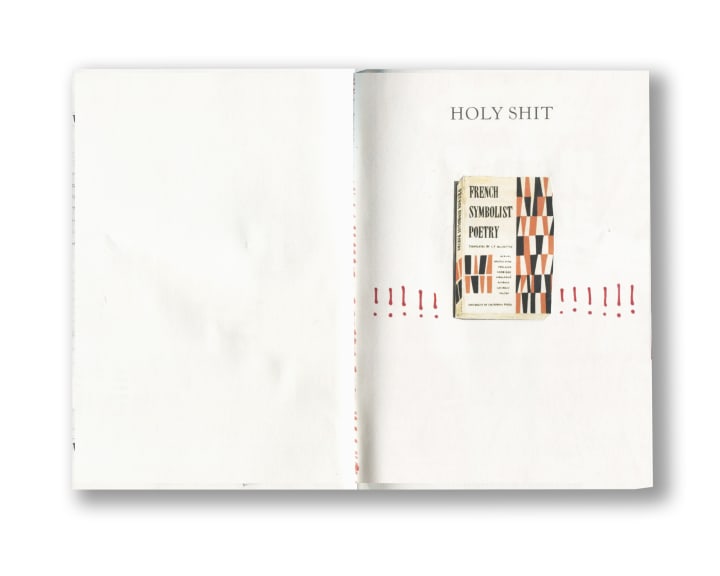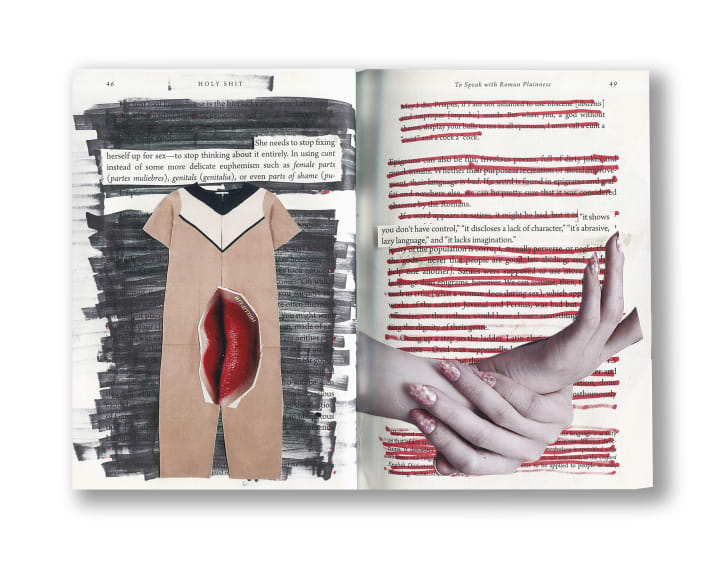Ontology of Silence: Discomfort in an Age of Autonomy
Maybe slowness is a gift only received once you’ve crossed the threshold of a specific age. Maybe silence is the first step of stepping stones into ritual reflection, forgiveness, and then into understanding slowness.

“Everything about you helps me sleep,” he mumbled. I had just finished reciting some of my earlier literary works, a selection of written correspondence between myself and my journal from the beginnings of my first semester as a graduate student. Maybe slowness is a gift only received once you’ve crossed the threshold of a specific age. I like to think of the elderly as reflective sages with a warehouse of knowledge that they are just now starting to catalogue. They create a dewey decimal system for their experiences towards the middle and end of their lives. They study and drink tea. They are afforded time to read a newspaper. Perhaps, slowness is an ignorance to responsibility or a freeing from social constraints.
The chains of careers are heavier than before. There are instances where I wish I could further myself from them. What do I wear? How does this hair clip exhibit my personality? What does this sticker say about my political orientation? We’re held up to these realized social constraints that make us cry from the inside, but we smile and carry on with our phones held in front of our faces...
The conversations we were having, prior to my rehearsal, were somewhat typical. Paul normally calls me and premises the call with a summary of his day so far, the tips he’s made at this delivery job or social news. Today, he called and first talked about how the stash of pot that he had just purchased had an awful amount of stems in it. The person that he buys from is a mutual friend and we both decided that he should take all of the stems back to him, weigh it out in front of him, and then request that the weight of the stems, in relation to the price per ounces commonly used in the dealings of marijuana, be compensated for. Then we both confirmed that that would be positively ludacris and we laughed. We expressed our longing for each other, the electric bill, and holiday plans.
We had a brief interlude as Paul had to clean up our cat. Calcifer the cat doesn’t have a reputation for being called Mr. Poopybuthole for just any reason—or casual reference to the popular TV show Rick and Morty. Cal is essentially a ball of white fluff or Fl-ooof (as we like to say) and demonstrates many of the characteristics that make up me and Paul interactively. He’s impulsive, irregular, and aversive to any type of routine that would be considerate or convenient for sake of others. He’s also hilarious and a social creature; his gregariousness is determined by the number of people in a room. Too many people and he shuts down or resorts to customary actions and expectations of his species. He’s at his optimal cat-level of interaction when he’s in the presence of just me and Paul. I like to think of the development of these character traits as evidence of positive child rearing.
After returning to the phone, silence persisted. I enjoy our communion of silence as almost protest. We’re engaged in the persistence of silence as an interaction built upon aspects of trust, acceptance, and unmitigated comfort.
Mia: Don’t you hate that? Vincent: What? Mia: Uncomfortable silences. Why do we feel it’s necessary to yak about bullshit in order to be comfortable? Vincent: I don’t know. That’s a good question. Mia: That’s when you know you’ve found somebody special. When you can just shut the fuck up for a minute and comfortably enjoy the silence. - Pulp Fiction , 1994
It’s a protest built upon stillness and quietude to vex our generation’s social constraints on orthodox oral interaction via telephone. I’m perplexed by people my age who can’t hold audible dialogue over telephone and often wonder if it’s because they can’t stand their own voice or they’re averting aspects of slowness; tender discussions that would inflict heavy emotional ties. We seek to distance ourselves from those interactions for the reward of a fast-paced work ethic and cold enthusiasm, lol.
After the silence fades, Paul tells me that he’s feeling tired which foreshadows the proverbial conclusion of our call. I admit to my own exhaustion and we hastily finish the transfer of funds to pay our electric bill that is already two days late. Afterwards, Paul makes a request that is unbefitting of his regular dialogue, especially between me and him. "Tell me a story," he mumbled. Maybe he’s made similar requests in the past and I’ve never been able to fulfill them. Perhaps I felt unprepared or couldn’t anticipate them. Incidentally, I was sitting in front of my computer at the time and decided to recite some of the things I had written over the past few months. The first three recitations were introduced with prerequisite information. The ones thereafter were met with no explanation for their existence and I fell into the trance of reading aloud without objection. Paul had gone quiet—as he tends to do so—mid way through my input in conversations. I had paused between pieces for a response and was met with silence. This type of silence is the kind that can be encouraging or detrimental. In this case, it was encouraging. I thought that he wanted me to continue without approval. I assumed that and continued onward until I realized that nobody was listening; and the very premise of writing itself, for the sheer sake of writing, became more depressing. Where does this work exist? Does anyone care about my thoughts, words, or inclusion for that matter? I started panicking in my head as the silenced filtered through without attendance. Paul? Paul! I exclaimed in a hushed and slightly annoyed tone. It was passed quiet hours and I was trying to be respectful to my roommates while chasticizing my fiance’s lacking response.
“PAUL!?” I yelped with the intent of arousal.
“M-mm... yes, honey?” he grumbled in a tired response.
“W-were you sleeping?” I asked.
“N-no, honey, I was listening I ju...”
“You were sleeping while I was talking the whole time? Oh my god, did my work put you to sleep? I...” I paused and he quickly came up with a response for his quietness in an attempt to make it sound as if he weren't actually sleeping even though I knew he was. But I stopped midway through the sentence because I realized from my own observations that my recital did put him to sleep and that wasn’t necessarily a bad thing. Everything taught to me about the occurrence of sleep, from childhood band, piano, and other performance instruction was negative. If an audience falls asleep while you’re performing, then you’re doing a bad job. But that’s not inherently true and it took all these years for me to make sense of that. What I was doing while reading was soothing and had put Paul at ease so well that he fallen into a slumber.
“—It was soothing.” He concluded right as I had made the connection. That was his honest reply and I believed it as our thoughts synchronised candidly
“I put you to sleep with words.” I laughed.
“Yeah. You did,” he replied quietly while at the brink of sleep. We said our goodbyes and goodnights. The phone call ended and I was left re-evaluating aspects of silence. I thought about how silence was often met with negative consequences while growing up and how that association related to my generation’s aversion towards it. I sat in silence to reflect upon notions of silence. I sat in silence until it motivated me to write.








Comments
There are no comments for this story
Be the first to respond and start the conversation.